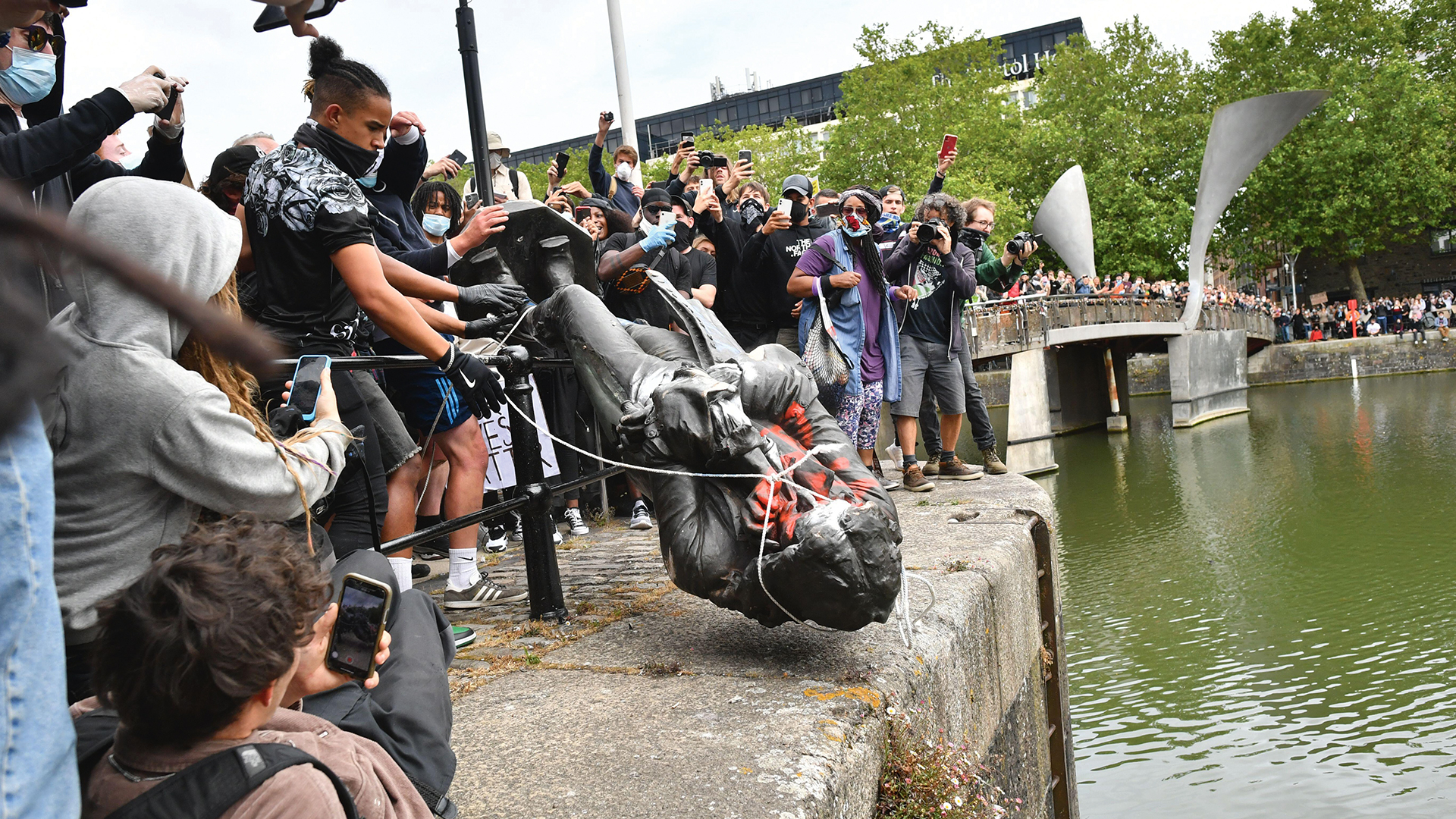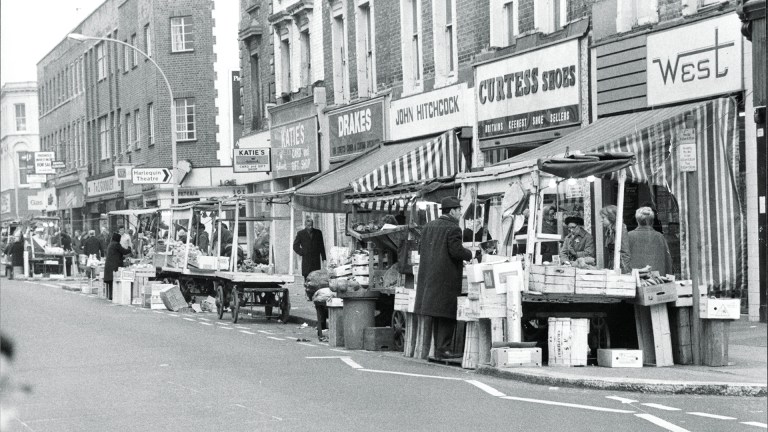At a rally in New York on 23 May 2021, almost a year after the murder and start of the protests, and during the trial that saw Chauvin convicted and sentenced to 22.5 years in prison, George Floyd’s brother Terrance called on the crowd to continue fighting and ‘stay woke’.
This call would echo in discussions and criticisms of the legacy of the movement in the years that followed, particularly in the context of the current ‘anti-woke’ backlash. Some criticised an alleged lack of radicalism and concern for ‘real’ racism and structural change over superficial and divisive ‘identity-politics’, as well as its co-option (and vulnerability to it) by politicians and corporations. Both are somewhat unfair. Firstly, because mass popular movements and mobilisations expand beyond a radical core, becoming more diverse and democratic, and in the process unmanageable and co-optable.
This can of course distract from or undermine radical politics, but also where impact on the powerful may be more possible or at least visible (as well as less structural and permanent).
I get that critique coming from activists and those at the sharp end of systemic racism, but it has often come from those who reject radicalism, seek compromise or even want the movement to fail.
Secondly, the criticism of identity politics as non-structural and divisive not only ignores the radical history of identity-politics, the fact that identity, intersectionality, representation and experience are central to anti-racism and it is often attacked and undermined for this. What is ironic, is that critics who claim identity-politics are superficial and divisive often represent it this way, play divide and rule and claim to care about ‘real’ racism like slavery and colonialism while defending of monuments to these. Thirdly, the movement was also being attacked for being too radical, as well as extremist and criminal, in ways that not only justified crackdowns, but were also part of the wider backlash against anti-racism and racial progress.
Get the latest news and insight into how the Big Issue magazine is made by signing up for the Inside Big Issue newsletter
Advertising helps fund Big Issue’s mission to end poverty
Present Trump, a symptom and symbol of this backlash, started calling for crackdowns almost immediately. Over 30 states and Washington DC, brought in National and State Guards, as well as federal agencies such as the FBI and Homeland Security who targeted ‘Black Identity Extremists’.
This was justified by concerns about crime, security and Covid measures, even while the far-right was mobilising on the streets in opposition to both BLM and such measures. By the end of June 2020, almost 15,000 arrests had been made. There was also a push for legislation to repress protest, protect monuments and fund the police in the face of calls to ‘defund’ it.
In the UK, prime minister Boris Johnson represented the protests as being subverted by bad actors. The police response was heavy-handed but often done under the auspices of enforcing Covid measures. We also saw this in their response to the vigil for Sarah Everard, who was raped and murdered by a serving officer, in March 2021 and Kill the Bill demonstrations against the Police, Crime, Sentencing and Court Bill in April 2021. This bill gave the police greater powers to criminalise protests they see as a public nuisance, as well allowing harsher punishment for offences, including damaging public monuments.
According to former director of Liberty Shami Chakrabarti, this gives ‘ever broader power to the home secretary and the police to shut down peaceful dissent, voices with which the government does not agree’. It has since become an act and joined by a new definition of ‘extremism’ which is seen to target pro-Palestinian protests. While they would also target far-right mobilisations such as the summer 2024 riots, they were widely represented as ‘protests’ in a positive sense and as an expression of ‘legitimate concerns’ from ‘ordinary people’.
What is undeniable is that despite some positive response to Black Lives Matter and the racial reckoning, it was rarely structural, clearly temporary and nowhere close to the reception, representation and mainstreaming racism and the far-right get. In the wake of the riots and gains for Reform UK in the May 2025 local elections, prime minister Starmer, purportedly seeking to prevent more riots and Reform’s chances, ramped up his co-option of far-right anti-immigrant politics and even echoed Enoch Powell’s 1968 Rivers of Blood speech. That is a far cry from taking a knee.
In the US, the 6 January 2021 insurrection led to the National Strategy for Combatting Domestic Terrorism. The Biden administration used this to not only address the far-right threat but also address the systemic racism BLM highlighted and was evident in both the disproportionate counterterrorism focus on Muslims and very different law enforcement responses to Black Lives Matter and insurrectionists. This was limited in potential and would soon not matter as Trump took office, pardoned those convicted for 6 January, appointed far-right figures, and dismantled DEI.
Advertising helps fund Big Issue’s mission to end poverty
These are the main reasons the movement and ‘racial reckoning’ were not fully realised. They were, for all the right reasons, on the wrong side of a long-running and well-resourced fight against any racial equality, progress and rights, including those already won, much less racial justice and more radical possibilities. Something many are still fighting for. Attention, legitimacy and support should be with them, not with racists and the far-right.
Aaron Winter is senior lecturer in sociology and director of the Centre for Alternatives to Social and Economic Inequalities (CASEI) at Lancaster University. He is co-editor of Researching the Far Right: Theory, Method and Practice and co-author of Reactionary Democracy: How Racism and the Populist Far Right Became Mainstream. He appears frequently in the media discussing issues related to racism and the far-right.
Promises are easy to break. Sign Big Issue’s petition for a Poverty Zero law and help us make tackling poverty a legal requirement, not just a policy priority.
Do you have a story to tell or opinions to share about this? Get in touch and tell us more. Big Issue exists to give homeless and marginalised people the opportunity to earn an income. To support our work buy a copy of the magazine or get the app from the App Store or Google Play.





